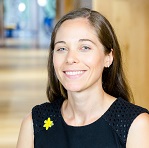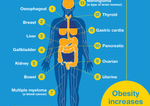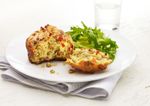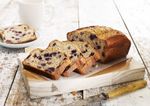Alison McAleese
LiveLighter Victoria Campaign Manager and Dietitian

Alison McAleese is an accredited practising dietitian with eight years’ experience in public health and obesity prevention. Alison has developed a special interest in prevention of disease and public health nutrition. She has worked in community nutrition education, project development and public health roles across Australia and the UK. Alison is the Victorian LiveLighter Campaign Manager at Cancer Council Victoria.
Articles by this author
-
Flavoured yoghurts hide up to 7.5 tsp sugar per serving: survey
- Apr 27, 2017
- by Alison McAleese
Some flavoured yoghurts sold in major supermarkets are hiding as many as 7.5 teaspoons of sugar per serving, making them more of a dessert than a healthy snack, new research from LiveLighter has revealed.
-

Carrying extra weight and cancer risk
- Dec 02, 2016
- by Alison McAleese
Maintaining a healthy weight is an important way to reduce your risk of cancer, with obesity now linked to more cancer types than ever before.
-

How healthy is your 'natural' food?
- Aug 25, 2016
- by Alison McAleese
It used to be ‘fresh’. Then it was ‘free from’. Now the latest buzzword in food marketing is ‘natural’ and supermarket shelves are bursting with a plethora of ‘natural’ foods derived from ‘nature’ and free from anything ‘artificial’. But does ‘natural’ mean healthy? And can this buzzword help us spot a healthy food? LiveLighter decided to find out.
-

Six foods that are healthier and cheaper to DIY
- Jul 13, 2016
- by Alison McAleese
Packaged foods might seem like a convenient and easy option for a mid-week meal or a lunchbox snack – but don’t be fooled…
-

Is breakfast the most important meal of the day?
- Mar 02, 2016
- by Alison McAleese
Breakfast has long been hailed as the most important meal, but is it really that necessary? We explore the evidence to see how it stacks up.